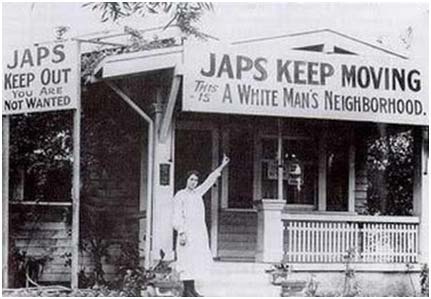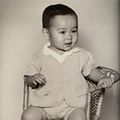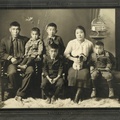I’m not one to pry into a Facebook friend of a friend post, but the other day I felt compelled to.
A longtime female friend had posted a photograph of a street scene in Tokyo. She was there on business.
In it, there was a Krispy Kreme shop.
In the comment section, a male “friend” of hers posted, “Where you at? That ain’t no Japan. Them Japs don’t eat no Krispy Kremes.” Or something to that effect.
“Japs?”
I had to file a complaint.
This Caucasian “friend” (and I use that loosely. My female friend sent me a text apologizing saying this person was simply an acquaintance. He was out of line) continued to use the word “Jap” which I found offensive.
I replied, “Sir, I find the word ‘Jap’ incredibly offensive. I don’t know you and you don’t know me, but let me tell you, the term you mention is highly derisive. It’s a derogatory slur.”
He replies by calling me a “moron and racist.” “Hey, Moron! Didn’t you know that ‘Jap’ was shorthand for Japanese? Are you stupid? You’re a racist! Jap is an accepted word. My wife and kid are Japs, and they don’t mind.” (Apparently, simply by marrying a Japanese person automatically gives one authority to be the leading spokesperson for all Japanese.)
Now, I don’t think much of his wife. Any person who is of Japanese ancestry who would willingly accept the term “Jap” as acceptable is suspect. Who knows. He probably bullies them.
I went on, “Sir. The term ‘Jap’ may well be an abbreviation of Japan or Japanese, and used colloquially by Londoners in the late 1800s. But that was then. By 1930, in the United States leading up to World War Two and during and after the war, the term ‘Jap’ was a hostile term.”
I added, “My parents and grandparents were derisively called ‘Japs.’ Usually accompanied by ‘dirty, go back to Japan,’ ‘We don’t like your kind here,’ or simply ‘Kill the Japs’.”
“My family was born and raised in America. I’m a fourth generation Japanese American. Despite that, even as a child growing up in the early 1960s, I too was called ‘Jap’ or ‘Jap Boy.’ The memory of WW2 was still quite evident.
“My family: good, upstanding American citizens, hard working farmers were forcibly placed in internment camps—Manzanar, Tule Lake, and Heart Mountain. My dad and his brothers, my mom’s brothers were all U.S Army soldiers fighting Imperial Japan. My uncle received the Purple Heart among other medals of honor. Yet, when he, my dad, and all my uncles returned Stateside on leave or after they were discharged, instead of being welcomed as war heroes, which they were, they were greeted by ‘Get lost, Jap!’”
Even in their U.S. Army uniforms, they were treated with disrespect.
When my family was finally released from the camps after the war, in their search for homes in Los Angeles County, most cities and neighborhoods placed placards that read, ‘No Japs Allowed’.
The man on Facebook kept on pressing home the point that “Jap” was an acceptable term for Japanese long ago. Yes, long ago. Not now. Not yesterday. Who’s calling whom a “moron?”
Then he admitted his wife’s parents were at Heart Mountain. But this fella is a young man, and more than likely his wife’s parents were small children if they were indeed held captive in the internment camp. They may have no memory of camp life. Nevertheless, that doesn’t rationalize the acceptance of “Jap.”
I replied, “So we have something in common. My mom and my grandparents were held captive at Heart Mountain. She was a teenager just beginning high school and my grandparents middle aged. They all told me the hardships of living there. The subzero winters—blizzards that were complete whiteouts. The sweltering hot, dusty summers…the only thing between themselves and the elements were flimsy wool clothes and a drafty tarpaper barrack heated by a small potbelly stove. So you know, right?”
No answer.
“You sir, have never ever experienced bigotry and racism. Perhaps neither has your wife or kid. Well, maybe from you as you casually refer to them as ‘Japs.’ You have the temerity to call me a racist? You stand on your soapbox and preach that there’s no harm in using the word ‘Jap’ when you have little understanding of the word’s history, nor have ever felt the cruelty not simply in language but in actual physical and mental harm. To allow your child to accept that word is a disgrace. You are blinded by your ignorance. And your child will suffer its consequences. Good day, sir.”
I left it there. The man kept his silence.
No Japanese American should accept the term “Jap” as anything but a derogatory slur.
No American. No anybody.
Neither should we condone other Asian ethnic slurs. Or any slur.
Racism and bigotry are alive and well in these United States. Only because we allow it.
Staying silent certainly doesn’t help.
© 2013 David Toyoshima






